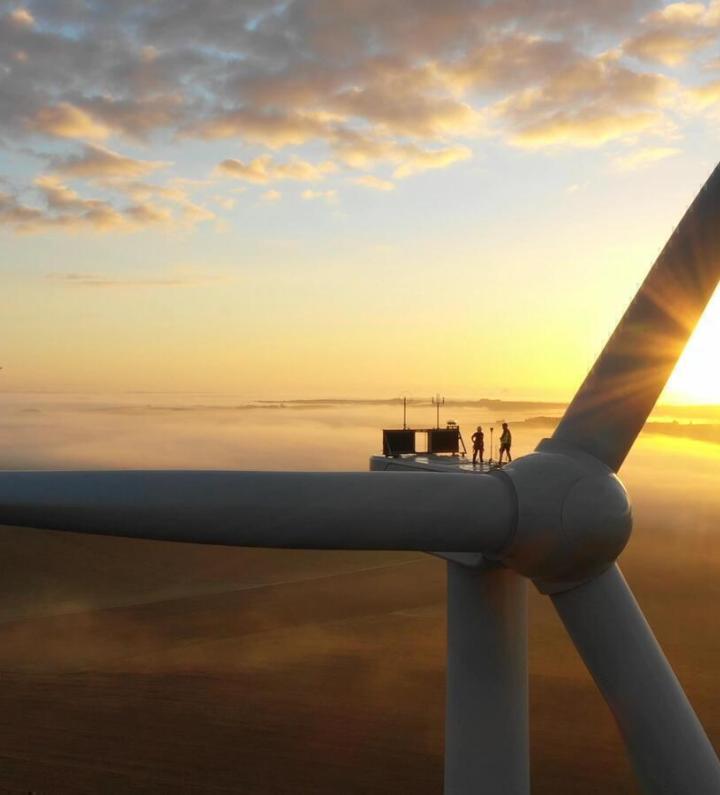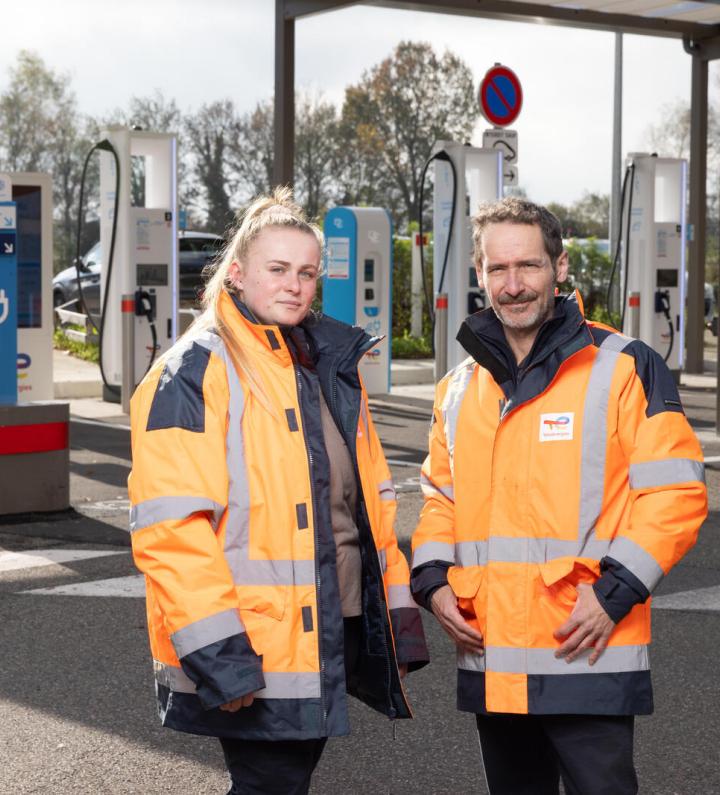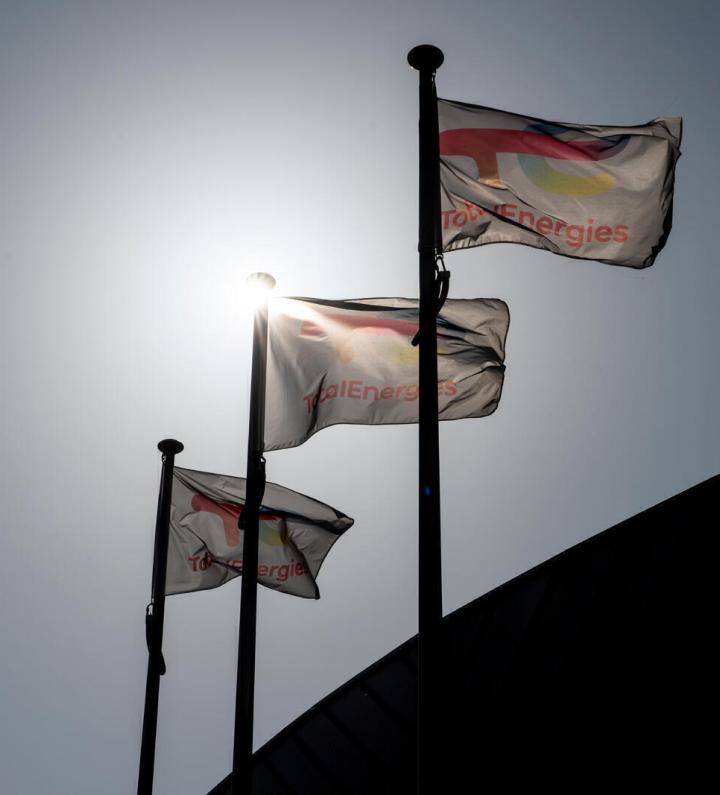Challenges Identification
Challenges Identification
Challenges Identification
TotalEnergies is present in about 120 countries. The nature of its activities and its geographical footprint in sometimes complex environments place the Company at the junction of a range of society’s concerns relating to people, the environment and business ethics. Energy is at the heart of the most daunting challenges of the 21st century, defined in the U.N.’s 2030 Agenda in the form of its 17 Sustainable Development Goals (SDGs). To achieve its ambition of carbon neutrality by 2050, together with society, the Company affirms its purpose: to provide as many people as possible with energy that is more reliable, more affordable and more sustainable, and places sustainability at the heart of its strategy, its projects and its operations.
Identification and assessment of main material impacts, risks and opportunities
In 2024, TotalEnergies formalized its double materiality analysis in order to identify the Company's material Impacts, Risks and Opportunities (IROs).
65 material IROs have been identified by the Company that fall within the scope of the matters covered by the European Sustainability Reporting Standards (ESRS).
The process of identifying and assessing IROs was based on existing systems within the Company, and in particular on the ongoing risk identification and mapping process implemented by the Company to develop policies in line with the desired degree of control.
In this process, the Company thus follows a variety of procedures to identify and assess the risks, opportunities and impacts of its activities in the areas of society, people’s health and safety, the environment, climate, human rights and business ethics, as well as in its supply chain:
- as regards health, safety and the environment, IROs are identified by the HSE division as part of a dynamic process that draws in particular on lessons learned, which are included in the HSE (Health, Safety and Environment) reference framework known as One MAESTRO (Management and Expectations Standards Toward Robust Operations);
- the identification of climate-related IROs is carried out by the Sustainability & Climate division;
- the identification of labor IROs is carried out by the Human Resources division;
- the identification of IROs as regards human rights is carried out by the Sustainability & Climate division, the Health, Safety and Environment division, the People & Social Engagement division and the TotalEnergies Global Procurement division, and relies in particular on the Reporting Framework for the UN Guiding Principles to identify its salient issues;
- in terms of purchasing, a mapping of CSR risks has been drawn up and regularly updated since 2012.
In conjunction with these processes to identify IROs, dialogue approaches based on stakeholders' involvement and participation are implemented in order to develop transparent relationships with them and to identify the main challenges and expectations.
These assessments are generally carried out:
- prior to investment, acquisitions and divestitures decisions on the Company’s industrial projects (evaluation by the Risk Committee of safety and security studies, impact assessments, particularly environmental and societal, and evaluation of consistency with the Company’s climate strategy, prior to review by the Executive Committee);
- during operations;
- prior to placing new substances on the market (toxicological and ecotoxicological studies, life cycle analyses).
These assessments incorporate the regulatory requirements of the countries where the Company operates and generally accepted professional practices. In addition, internal control systems are structured and regularly adjusted to align with the specific nature of the strategic areas and orientations set by the Board of Directors and General Management.
The main material impacts, risks and opportunities identified by TotalEnergies
Learn more about the process of identifying and assessing material impacts, risks and opportunities
For each of the identified topics, the Company has deployed policies and operational action plans with quantitative and qualitative objectives aimed to reduce the negative impacts and increase the positive impacts of its operations from an economic, social and environmental perspective.
Material IROs related to climate change
The Company has drawn on the recommendations of the TCFD (Task Force on Climate-related Financial Disclosures) to identify the risks and opportunities associated with climate change.
Details of material IROs related to climate change
More information on our climate and sustainable energy commitments
Material IROs related to the environment
To identify and assess material IROs related to the environment, TotalEnergies relied on the mapping of its Dependencies, Impacts, Risks and Opportunities (DIRO) linked specifically to nature together with the recommendations of the TNFD (Task Force on Nature-related Financial Disclosure), which highlighted in particular:
- the dependencies of the Company’s operated facilities on water resources (refineries, petrochemical sites, CCGT), on the availability of land (direct for solar farms and indirect for its feedstock of agricultural origin), and on weather conditions;
- impacts linked to potential pollution or to the physical footprint of its operated facilities (e.g. wind farms);
- the physical risks associated with extreme climatic events, as well as the risks of water stress and rising land prices.
TotalEnergies has identified its environmentally material sites. The Company defines them as sites likely to have a significant impact on the environment through their footprint (pressure on biodiversity), chronic discharges or accidental releases.
Material IROs related to labor
Company own workforce
With more than 100,000 employees worldwide and a presence in about 120 countries, the company is convinced that its development is inseparable from the trust and respect established between itself and its employees. TotalEnergies' social commitment is therefore based on the values set out in its Code of Conduct.
Details of material IROs related to Company own workforce
Our commitments as a responsible employer
Health and safety
It is around safety, core value of the Company, in accordance with the strictest standards and with regard to health that the operational measures and indicators used to manage the Company’s activities are based.
The activities of TotalEnergies involve health and safety risks for its employees, contractors, and residents in the vicinity of its industrial sites. Furthermore, certain products marketed by TotalEnergies may present risks for the health and safety of consumers.
As part of its double materiality analysis, the Company has identified the following material health and safety impacts, risks and opportunities. They cover the following main areas:
- major industrial accidents;
- occupational accidents;
- transportation accidents;
- health at work.
The identification of IROs in terms of personal health and safety is the result of a dynamic process, based in particular on feedback integrated into the HSE reference framework known as One MAESTRO (Management and Expectation Standards Towards Robust Operations).
Details of material IROs related to health and safety
More information on our health and safety commitments
Value chain workers
TotalEnergies’ activities generate hundreds of thousands of direct and indirect jobs worldwide. Workers in the value chain likely to be affected by material impacts related to the Company's activities or its value chain include:
- upstream, the workers of suppliers of goods and services;
- downstream, workers at the Company's distributors and service stations operated by a third party.
Details of material IROs related to value chain workers
More information about value chain workers
Affected communities
TotalEnergies strives to be an agent of positive change for society, and to contribute to its development through its societal actions. At a national level, the Company's activities generate value for the countries where it operates. At a local level, the Company's activities can be a source of opportunities for people but may also have an impact on the living conditions of local communities and residents.
Details of material IROs related to affected communities
More information about Human rights
Consumers and end-users
TotalEnergies' Code of Conduct sets out the guiding principles and commitments relating to the relationship with its customers: to provide quality products and services, always seeking to deliver the best performance at a competitive price, in a just transition approach.
To be able to identify, assess, manage and, if necessary, repair any material impact on consumers and end-users, the company has set up various channels for dialogue with its customers, both private and professional.
Details of material IROs related to consumers and end-users
Find out more about hardware IROs related to consumers and end-users
Material IROs related to Business conduct
In identifying and assessing material IROs relating to business conduct issues, the Company took into account its size, its business segment in which the amounts invested can be very substantial, its strategic positioning and its geographical presence in about 120 countries, some of which are perceived to have high levels of corruption according to the Transparency International index.
Details of material IROs related to business conduct
More Energy, Less Emissions










